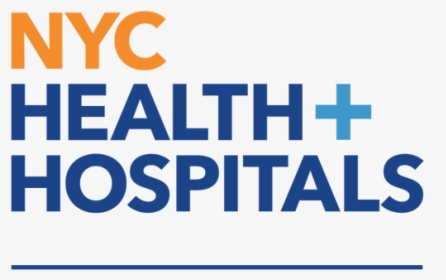
Health system’s average A1c control rates return to pre-pandemic levelsamong patients enrolled in diabetes management programs
NEW YORK (TIP): NYC Health + Hospitals, on November 24, expanded the diabetes management programs available to approximately 66,000 New Yorkers with diabetes who receive care in the City’s public hospitals and community-based health centers. The health system’s diabetes management programs utilize alternative methods to more easily adjust medications and new technologies to help patients remain in control of their diabetes in addition to traditional in-person appointments. The expansion includes integrating clinical pharmacists in each of the health system’s 11 hospitals and four Gotham Health community clinics city-wide, having the capacity to complete more than 10,000 teleretinal screenings annually due to machines being available system-wide, and offering peer mentoring and remote monitoring opportunities for many patients with diabetes. NYC Health + Hospitals’ A1c control rates, or blood sugar levels, have returned to pre-pandemic levels among patients enrolled in these diabetes management programs. “For patients with diabetes, controlling their diabetes can be difficult and there is not one solution that works for all patients. Our health system’s multifaceted approach to diabetes programs makes it easier for patients to not only manage their blood sugar levels, but do it in a way that works best for them and their needs,” said NYC Health + Hospitals Vice President and Chief Population Health Officer Nichola Davis, MD. “With the help of our expert, passionate, and diverse clinical teams – that spans chronic disease nurses, clinical pharmacists, nutritionists, peer mentors and more – we will continue to extend these programs that allow New Yorkers to live healthier, fuller lives.”
NYC Health + Hospitals has expanded primary care-centered diabetes management programs to include:
Clinical Pharmacists in Primary Care – A total of 28 clinical pharmacists were added to each of the system’s 11 hospitals and four were added to Gotham Health community clinics to work as integrated members of primary care teams with a focus on medication management. Clinical pharmacists act as part of patients’ care teams but operate independently to help patients, in this case with uncontrolled diabetes or complicated diabetes medication regimens, to manage their medications between primary care visits. Since the inception of the program, approximately 3,000 patients seen by clinical pharmacists have had an average change in A1c of -1.86 percent. Teleretinal Screening in Primary Care – Primary care sites across the city now offer teleretinal screenings as part of a routine primary care visit for patients with diabetes. A number of the system’s Gotham Health community clinics and the system’s hospitals have teleretinal machines, helping achieve more than 10,000 screenings annually for the health system. Patients are able to get their preventive care in a more convenient way instead of having to schedule a separate ophthalmology appointment. Annual retinal screening is an important component of comprehensive diabetes care. Those with consistently uncontrolled diabetes are at risk for developing diabetic retinopathy, the leading cause of blindness in U.S. adults aged 20-74. Diabetic retinopathy may not cause symptoms immediately; therefore, early detection through screening is the best way to prevent vision loss in patients. Peer Mentors a Phone Call Away – Patients with diabetes have the opportunity to speak to peer mentors on the phone to help enhance their diabetes self-management. Peer mentors are patients who are successfully living with diabetes who are trained to help other patients who are struggling with their diabetes. This remote workforce of peer mentors helps address each patient’s barriers related to the social determinants of health while inspiring healthy lifestyle behavioral changes. Once a patient is referred to InquisitHealth by their primary care doctor, they are matched with a culturally appropriate mentor, scheduling regular check-ins and touching base more frequently as needed. The peer mentoring program is offered at NYC Health + Hospitals/Coney Island, Elmhurst, Kings County, Lincoln, Metropolitan, North Central Bronx, and Woodhull, as well as NYC Health + Hospitals/Gotham Health, Cumberland.
A Coach in Your Pocket Smartphone App – Patients with diabetes have access to an app that provides real-time, individualized coaching, reminders, and support, as well as diabetes educational tools that are actionable and personalized for each patient to monitor and manage their type-2 diabetes. The app helps to bridge the gap between patients and their providers outside of the clinic visit. With integrations to devices and apps, patients can connect to their pharmacies for medication tracking, blood glucose meters, labs, and activity trackers. Based on the collected information, the app provides patient feedback, guidance and education for better patient self-management and clinical decision support. The app also provides diabetes articles and videos, healthy recipes and access to the user’s own care team via the app. The app is available for patients receiving care at NYC Health + Hospitals/Elmhurst, Lincoln, Metropolitan, North Central Bronx, Queens, Woodhull, as well as NYC Health + Hospitals/Gotham Health, Gouverneur and Morrisania.
Text Messages and Support for Insulin Adjustment – Multiple facilities continue to offer a text-based program that optimizes insulin dosing for patients with diabetes who are on insulin. This program has been ongoing at NYC Health + Hospitals since 2012 with significant success. Eighty-three percent of patients enrolled meet their anticipated goals, and patients report feeling better connected with their care teams through the program
“Being able to work one-on-one with Clinical Pharmacist Nick Niceforo really made the difference for my diabetes,” said a 58-year-old NYC Health + Hospitals/Queens diabetes patient enrolled in the clinical pharmacist program. “He was able to explain medication administration, their purpose, and the proper way to use it that led to lowering my A1c levels to a healthier rate. But his work went further, also helping me understand how foods affected my blood sugar levels that helped me control my sugar even more.”
“Once in a while, a patient will come along that sticks with you. For me, it was a male schoolteacher who had chronically elevated A1c levels in the double digits – extremely dangerous,” said Chronic Disease Nurse Chinye Uzor at NYC Health + Hospitals/Gotham Health, Gouverneur. “With our support, we helped this patient enroll into multiple diabetes control programs, including our clinical pharmacist program, peer support groups, and he was referred to a nutritionist for further one-on-one work. Now, he is able to control his A1c levels and live a healthier life.” “For years, my office has worked towards building a healthy Bronx through the creation of our #Not62 campaign and different health initiatives,” said Bronx Borough President Ruben Diaz Jr. “As we recover from the COVID-19 pandemic, we must invest in our health, and the expansion of primary care-centered diabetes management programs will do just that. I commend NYC Health + Hospitals for their on-going dedication to tackle critical health issues in The Bronx and New York City.”
Patients with diabetes receiving care at NYC Health + Hospitals who have A1c levels that are uncontrolled (usually A1c 8.0 or higher) are typically referred to the hospital’s suite of supportive diabetes services. Depending on their needs, a patient can be referred and enrolled to more than one program to achieve better controlled A1c levels. Hemoglobin A1c is a simple blood test that measures average blood sugar levels over the past three months, which reflects diabetes control.”.
In addition to these programs, NYC Health + Hospitals offers expert diabetes care at all acute health facilities and neighborhood health centers, which may include education classes, one-on-one sessions, and patient support groups. NYC Health + Hospitals/Kings County, Jacobi, Lincoln, Metropolitan, North Central Bronx, and Queens, as well as NYC Health + Hospitals/Gotham Health, Sydenham, are accredited for providing high-quality, evidence-based education for patients with diabetes.
The prestigious accreditation from the American Association of Diabetes Educators or the American Diabetes Association verifies that the hospitals’ programs meet national standards for diabetes self-management education, which have been shown to be cost-effective and improve clinical outcomes and patients’ quality of life.
Nearly one million New Yorkers have diabetes, and about 19 percent are undiagnosed. Uncontrolled diabetes can cause blindness, and kidney disease, and lower extremity amputations in adults. Obese New Yorkers are two times more likely as other adults to have diabetes. Adults living in high-poverty neighborhoods are also at least twice as likely to report having diabetes compared to adults living in low-poverty neighborhoods. The average medical expenditures for people with diagnosed diabetes are about $16,752 per year, with about $9,601 of this being attributed to diabetes management directly.
###
About NYC Health + Hospitals
NYC Health + Hospitals is the largest public health care system in the nation serving more than a million New Yorkers annually in more than 70 patient care locations across the city’s five boroughs. A robust network of outpatient, neighborhood-based primary and specialty care centers anchors care coordination with the system’s trauma centers, nursing homes, post-acute care centers, home care agency, and MetroPlus health plan—all supported by 11 essential hospitals. Its diverse workforce of more than 42,000 employees is uniquely focused on empowering New Yorkers, without exception, to live the healthiest life possible. For more information, visit www.nychealthandhospitals.org and stay connected on Facebook at https://www.facebook.com/NYCHealthandHospitals or Twitter at @NYCHealthSystem.





Be the first to comment